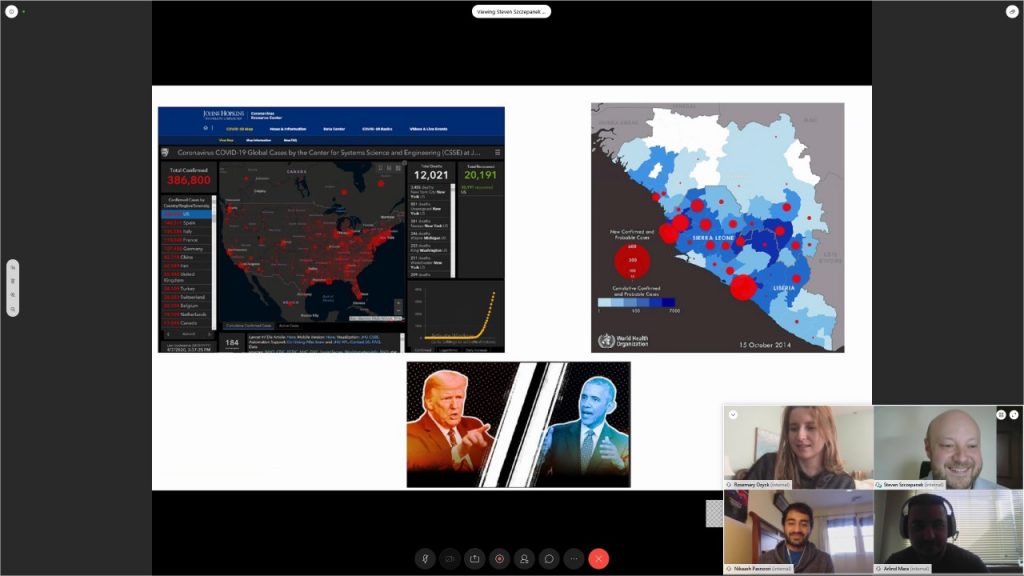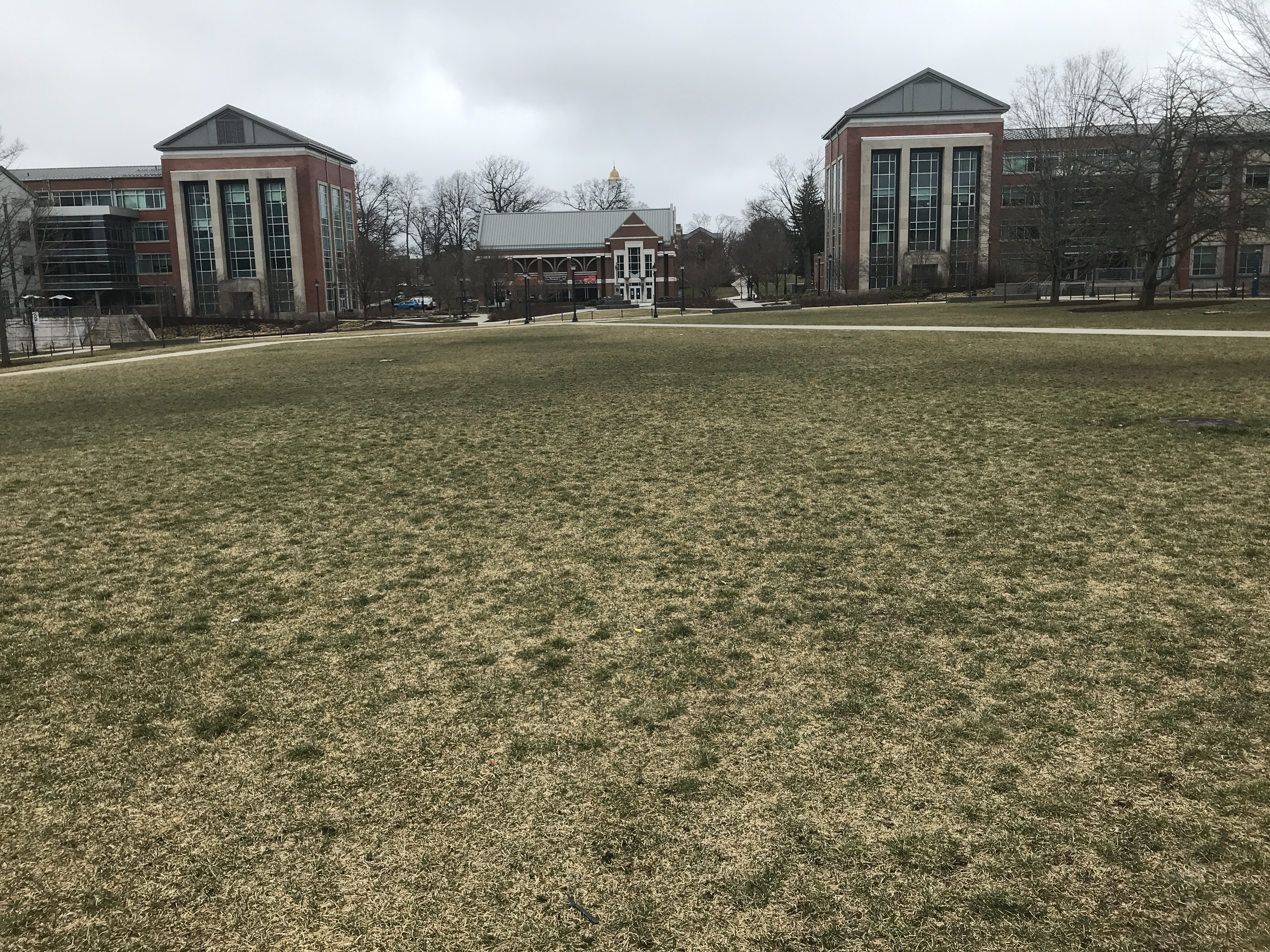For students taking Steven Szczepanek’s Emerging Infectious Diseases (PVS 3700) course, the world became a classroom and case study in real time in the months since the COVID-19 pandemic began.
When the first reports of the virus we now know as SARS-CoV-2 started circulating in January, the class began studying the situation as it unfolded.
“We had started following it before there were even 100 reported cases,” says pathobiology major Jeremy Miller (CAHNR ’21). “Academically speaking, watching the pandemic unfold first-hand was incredibly instructive to understanding how new infectious diseases emerge and what consequences they may bring.”
For pathobiology major Grace Ozyck (CAHNR ‘22), those early days illustrate how unpredictably epidemics and pandemics can unfold, as original assumptions about the spread of the virus have proven to have been underestimates.
“Initially, we were told not to worry because we thought people would be more precautious and the disease wouldn’t spread to the US,” she says. “However, if it did spread to the US, it wouldn’t have a strong foothold.”

As the semester progressed, so has the pandemic. With containment mechanisms such as physical distancing in place, and the University moving to online class delivery while cities, counties, and states adopt “lockdown” strategies, each measure has served as a chance for the class to analyze and learn.
For Miller, his deeper understanding of the pandemic is both reassuring and unnerving.
“We’ve gotten to have each lecture and then (depending on the lecture) see the immediate proposed mechanisms or societal changes in real-time,” he says. “This has led to a range of emotions, because on the one hand, there’s a calming effect in seeing and appreciating the work that has been done to understand pandemics and the medical professionals that handle them. However, on the other hand, it was also very apparent the direction we were heading in immediately, and thus there was a sense of impending doom.”
Miller says that, as soon as community spread of the virus was confirmed in the weeks before spring break, he anticipated the situation and packed everything up before leaving campus. Besides saving money and time, the class has given him a measure of calm.
“I think the class has helped me avoid panic and see the situation for what it really is,” he says. “Unfortunately, that mentality isn’t as infectious as SARS-CoV-2, so I have had to watch a lot of loved ones enter a panicked state.”
Like all classes at Storrs, the regional campuses, and the UConn School of Law, the course has transitioned to an online format, and Miller and Ozyck have returned to their homes to isolate, where they have had the opportunity to share knowledge gained from the course with others.
Ozyck has been able the allay the fears of friends who are stockpiling supplies but feels conflicted about that.
“It scares me that my friends and family are taking advice from a college student and not medical professionals,” she says.
While she does feel upset that her on-campus experience was cut short, Ozyck says she is able to put things into perspective and realizes the loss of those experiences is nothing compared to what many people are facing as the pandemic unfolds.
“People are dying and my losses are minuscule compared to others,” she says. “My family is self-isolating because I have respiratory problems and both of my parents are immunocompromised. I noticed people were still traveling over spring break and throwing the advice of countless professionals into the wind. They didn’t think it was a problem because they won’t get sick. They don’t realize they could be putting others in danger like the elderly and immunocompromised citizens. People’s selfishness is causing a global pandemic. Either people are taking it too seriously by buying out whole grocery stores and leaving hospitals without masks, or people aren’t taking it seriously enough by traveling, not self-isolating.”
Miller says the transition to online classes has been challenging.
“It’s laughably easy to fall behind in lectures and other work,” he says. “It’s in times like these that I remember the benefit of having peers doing similar work around me, and why I don’t normally sign up for online classes.”
He hopes that the United States — and the world — emerges from the pandemic with an increased understanding of the importance of public health.
“Our country seems to often adopt a mentality of the individual doing whatever they want to do,” he says. “This isn’t always a negative, and I’m not against it per se, but I think it’s critical to understand what impacts one’s actions can have at any given time. Hopefully this pandemic will also shed light on areas of our health care system that are in dire need of changes or upgrades.”
But for the time being, Ozyck stresses the final, and perhaps most vital, advice the class was given before leaving campus: “Don’t travel, practice physical distancing, stay healthy, and wash your hands.”
PVS 3700 is taught by assistant professor of pathobiology and veterinary science Steven Szczepanek. To learn more see the course catalog or this story on Naturally@UConn.



